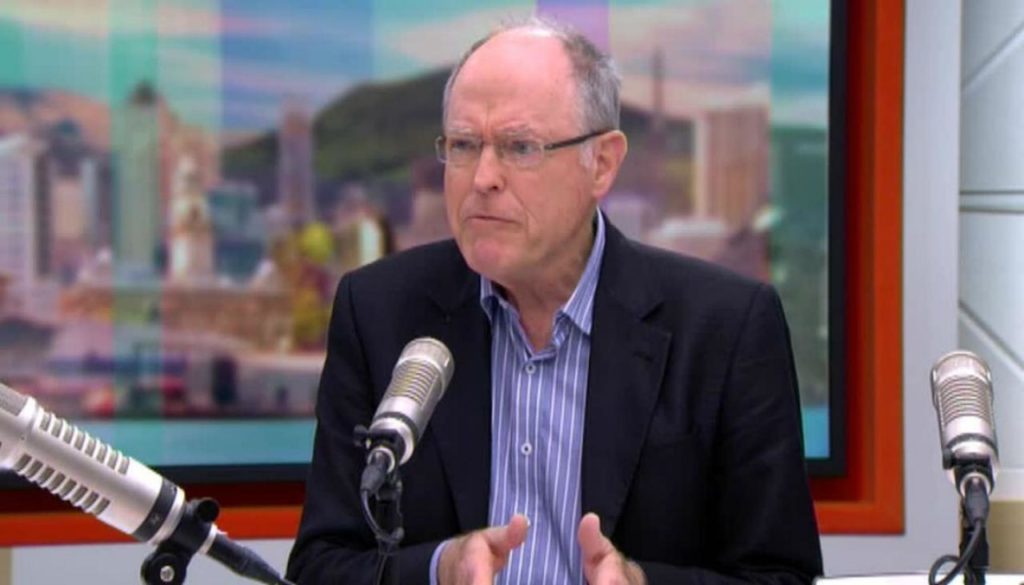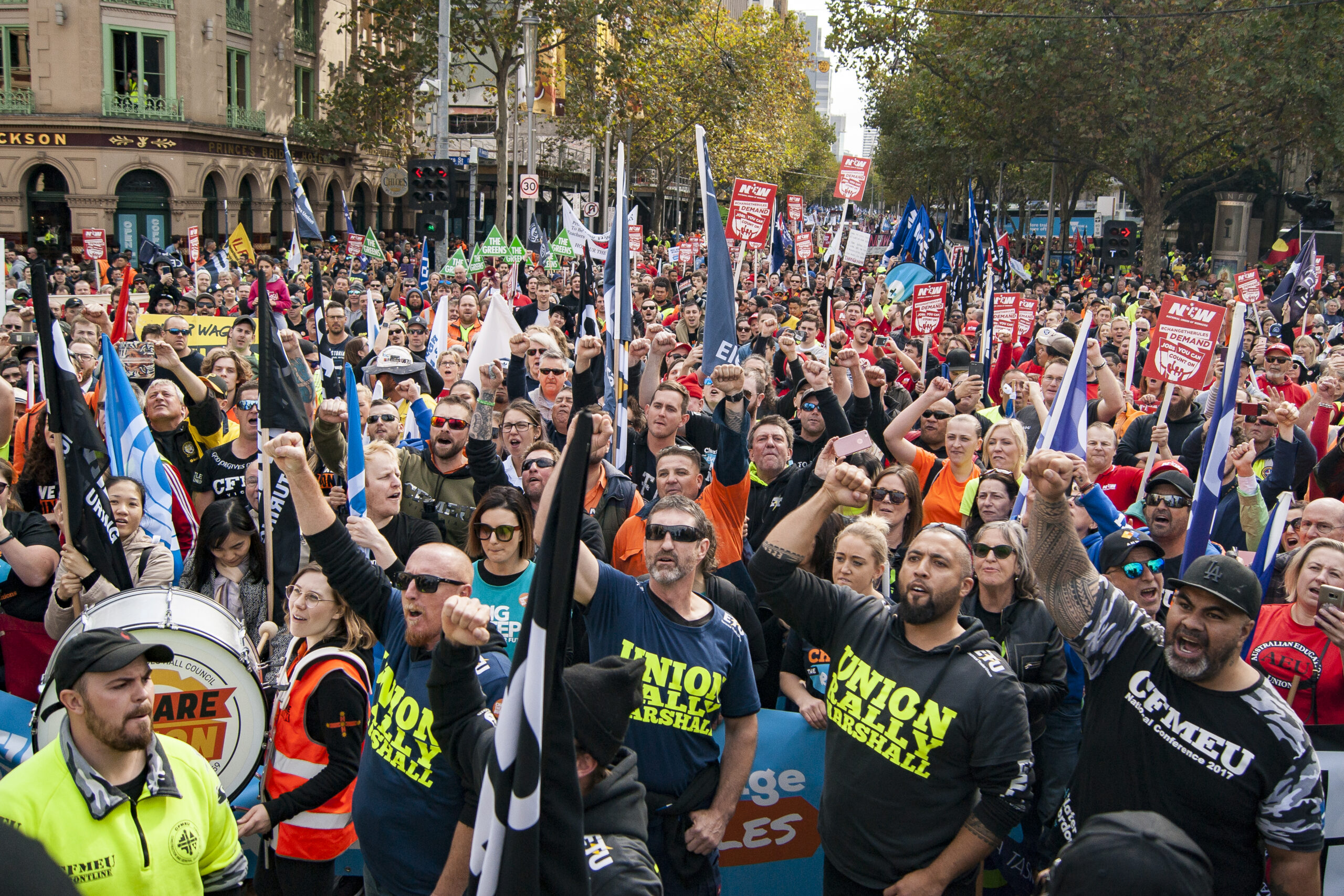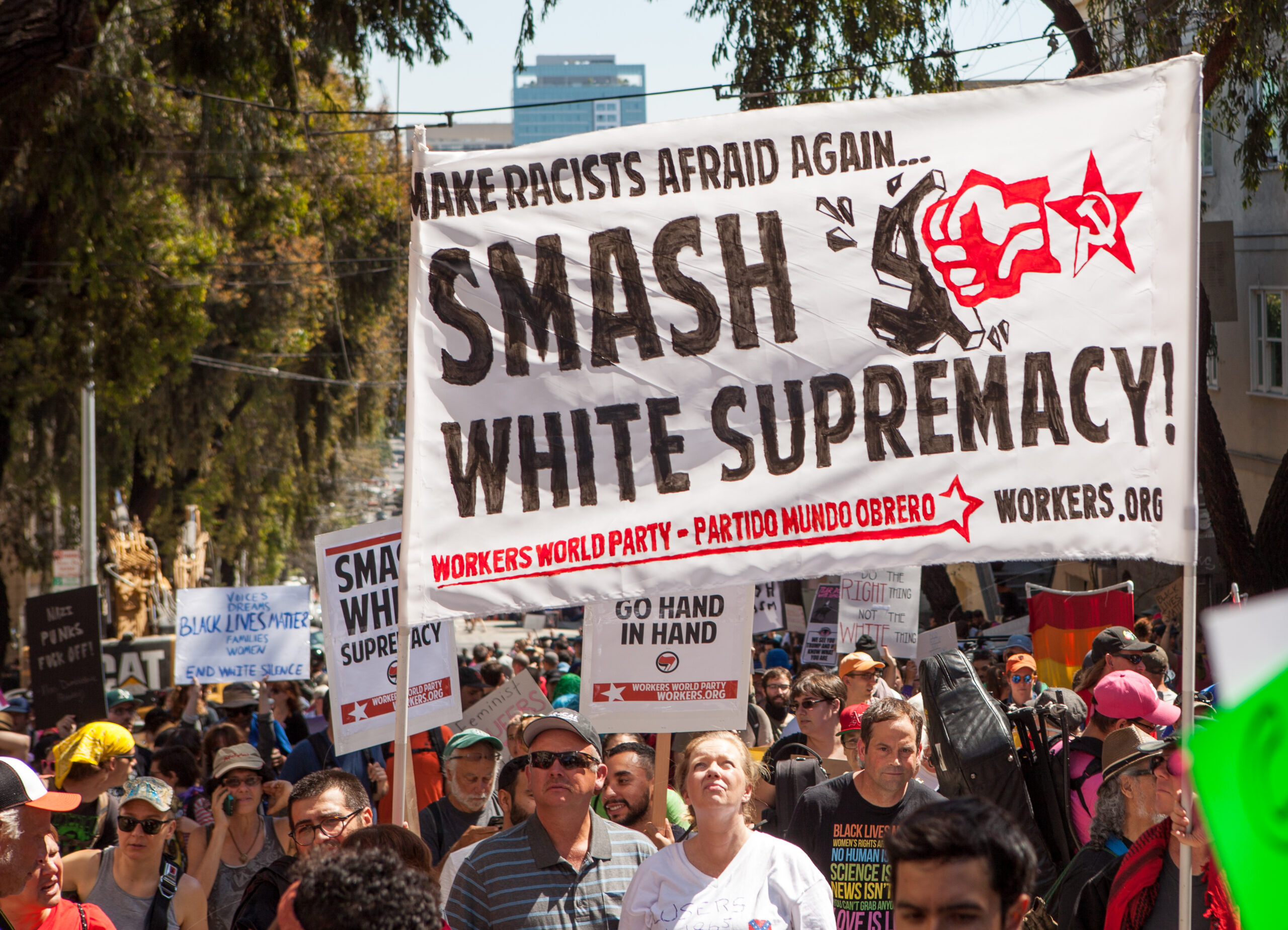A pleasing irony to end the year: enrolments by non-Māori in Māori language courses in the Wellington region have surged recently, encouraged in part it seems by the reactionary campaign against the use of Te Reo Māori on Radio New Zealand. It’s a welcome sign.
Socialists support any and all efforts to revitalise, preserve and celebrate te reo Māori. Language and culture are democratic rights. Whānau have the right to have their tamariki educated in the language of their choice, and the state should massively fund Māori language instruction and support – in Kura Kaupapa Māori as well as in schools generally – to make this possible. Genuine open access to university and better student allowances would allow more Māori to reconnect with their language, as would further funding for wānanga and other language providers. We defend any moves to centre the use of Māori as a lived official language. The example of French in Canada shows that, where there is a political will, there is always a linguistic way. The Māori Language Commission, Māori Television, te reo Māori in schools, arts and culture funding: these are all products of the long struggle for Māori rights, and represent democratic advances. And they are a benefit to the whole class, not just Māori themselves. My daughter comes home from primary school proud of the waiata she has learned, and can say a karakia before meals. There is plenty around us to feel good about.
This year has seen a flowering of Māori intellectual, cultural and artistic life. Carwyn Jones’s prize-winning book on legal theory is being reviewed and debated internationally. Tina Makereti’s speech on Māori literature and what is taught (and not taught) set a challenge for literary critics working in New Zealand. Vini Olsen-Reeder graduated with a PhD from Victoria in December for a thesis written entirely in Māori. Rawinia Higgins, Jessica Hutchings and Olsen-Reeder have just published an important book on strategies for language revitalisation. And those are just examples from around where I live – much more is going on elsewhere. It’s an exciting time to be alive and be thinking.
Opponents of Māori language on public broadcasting represent a groan from a boring part of the past, then, rather than any energetic current in our present. Go on to any major worksite across New Zealand currently, from a construction site to a supermarket, and you will hear a mass of languages spoken across cultures. Our class is becoming more diverse with each passing year, and new waves of migrants bring new languages, new food, new ideas, new ways of struggle. The country is getting ‘browner’, too, and that is a good thing. One legacy of the great battles of the 1970s and 1980s is that more people are identifying as Māori, gaining the confidence to explore their whakapapa and claim their own reality. You do not hear people refer to themselves as ‘half’ anything so much anymore, as you did in the past. As the idea of whakapapa translates into society more generally, more workers are learning how we can identify in complex ways: you can be Māori and Chinese, Pākehā and Korean, and so on. And the most working-class parts of New Zealand are the most diverse and most accepting.
We socialists welcome all of this. For starters, we welcome it for the basic reason of democratic rights. Māori have the right to live as Māori. That means struggling against the legacy of a colonial conquest that tried to destroy the language, culture, and collective traditions of iwi and hapū as it stole their land and imposed the capitalist mode of production on these islands. So the reclamation of language and identity connects, before too long, with wider questions of power, land, and politics. And we welcome the renewed confidence of Māori in reo and tikanga because it has something to offer all of us as a class. The more confident Māori workers are in themselves, the more likely they are to have confidence in standing up for the rights at work, in housing, in public services. That means collective struggle. It’s no wonder, then, that trade unions – bodies that try to unify all workers across an industry – have been the most enthusiastic and consistent supporters of Māori struggles across these last sixty years.
Unfortunately, this is not how most commentary on Don Brash and te reo Māori has developed. The common sense across much of the left nowadays uses the language of ‘privilege’ to describe the workings of the world. Brash, in this way of thinking, is an old Pākehā male defending the privilege of old Pākehā males. While this might seem an accurate description of the world, it doesn’t help us explain what is going on, and why we should reject his racism.
There are a few reasons to reject the idea of ‘privilege’. For starters, Don Brash is hardly representative of Pākehā in general. He led ACT to dismal failure the last time he was active in politics. His time as Reserve Bank governor saw immiseration, unemployment, increased inequality and joblessness for many Pākehā workers as Rogernomics and Ruthenasia wiped out jobs in forestry, the railways, the meatworks, and then conditions generally. He is our enemy. This is a history Pākehā workers share with their Māori and Pasefika brothers and sisters. The left should not encourage the idea that this figure – a cranky spokesman for wealth and inequality – somehow speaks for Pākehā interests generally. That is the illusion he hopes to develop. To the extent that employers and large farmers can convince enough Pākehā workers that their interests lie with others of the same ‘culture’ rather than with workers of many cultures, our side will remain divided and weakened.
Secondly, Pākehā workers have nothing to lose – and a lot to gain – from Māori struggle. None of the gains of the last thirty years around language have been at the expense of Pākehā workers. To the contrary – schooling, public life and television are now more lively, more interesting, more varied and diverse. Just like our communities. Moving Wellington’s fireworks celebrations to Matariki will, quite apart from anything else more important around culture, mean children will now be able to see fireworks in the dark without fights over bedtime in November. More seriously, land rights struggles have been against the state and the capitalist interests who expropriated Māori land. Renting and mortgaged Pākehā workers have no ‘privilege’ to lose from justice being done there. Māori inequality in unemployment, imprisonment, health, early death – all of which should be shocking and should be intolerable – represents the most extreme form of widening inequalities between rich and poor under neoliberalism. So whatever fights Māori inequality will benefit us all. There are rich grounds for unity across the working class.
Iwi and hapū have used the language of biculturalism to advance their interests over the last thirty years. To the extent that this defends and extends Māori rights it should be supported. But we should reject any discourse that encourages us to think of a ‘partnership’ between peoples, as if there exists a unified Pākehā ‘people’ under the Crown. New Zealand, a capitalist state managing necessary inequality, is a site of struggle and contestation, not a place of partnership. Queen Victoria was our ancestors’ enemy, suppressor of the Chartists at home and overseer of Ireland’s starvation the decade Treaty was signed. And the Crown is our enemy here, just as Pākehā (and Māori) bosses and capitalist interests are opposed to the needs of our side. Learning how to know friend from enemy is an important political lesson. Don Brash is, among other things, trying to make sure we do not find out how to learn.
In political activism, the language of ‘privilege’ can be, at best, boring and, at worst, reinforces the very racist logic it tries to overcome. At best it is boring: there is more than enough narcissism in the world without activists adding to it by going on about their own privilege and talking at length about themselves, their lives and their feelings rather than about the urgent issues at hand.
At worst, talking about ‘white people’ or Pākehā as a homogenous bloc essentialises racial difference and makes it seem natural. But the discourse of race (or ‘ethnicity’ in its contemporary form) is an ideological fiction, and one which serves the interest of capital. There are no ‘white people’, and socialists should not encourage workers to identify with the illusion of ‘whiteness’.
A positive counter-example comes from the world of culture. We do not see culture as ‘belonging’ to groups of people, but want to encourage a flowering of human culture against class society. That means radically opposing Eurocentrism: we have as much to learn from Pramoedya Ananta Toer or Naguib Mahfouz as we do from Dickens.
But we should emphasis also that the revival of Māori cultural confidence out of the struggles of the 1970s benefitted workers’ self-expression generally. There is no stand-alone ‘European’ or ‘Pākehā’ legacy to be cordoned off and defended (or, for that matter, condemned). Who is this country’s greatest Shakespearean actor? Rawiri Paratene. Don Selwyn directed the Māori Merchant of Venice. Te Haumihiata Mason translated Troilus and Cressida. In prose, Witi Ihimaera’s novels make extensive use of Greek myth. Kiri Te Kanawa introduced many of us to the joys of opera. One of Robbie Burns’s biggest fans in Aotearoa was Hone Tuwhare: I once heard an impromptu (and spell-binding) recitation of “Tam O’Shanter” by him in the Albert Arms in Dunedin. The list could go on. The revival of culture separately is the revival of culture generally. And all of us have to gain from that. If Shakespeare is not taught in New Zealand as, in important ways, a Māori author then there is something wrong with how we are thinking and talking. The expansion of Māori cultural confidence will stretch and renew language, literature, and culture in all sorts of unexpected places. There is nothing to be lost there, and a bit to be rediscovered.
‘As long as you think you’re white there’s no hope for you,’ the great James Baldwin once wrote. Richard Seymour has riffed on this quote recently. As long as you think of yourself as part of the privileged – or, in the upside-down world of this local squabble about broadcasting – as one of the threatened – then the current order can keep prevailing. And a rich, right-wing reactionary like Brash can keep trying to pass himself off as the voice of ‘white people’.
A better, more fulfilling, more productive alternative is to see in the forces of culture and Māori self-assertion as contributing to the possibility of wider class unity and revived class struggle. To get there we need to unthink the myth of privilege and the fantasy of ‘whiteness’. We all – as workers – have plenty to gain from liberation. It’s the other side who have a lot to lose. In the meanwhile, kia ora te reo Māori!









